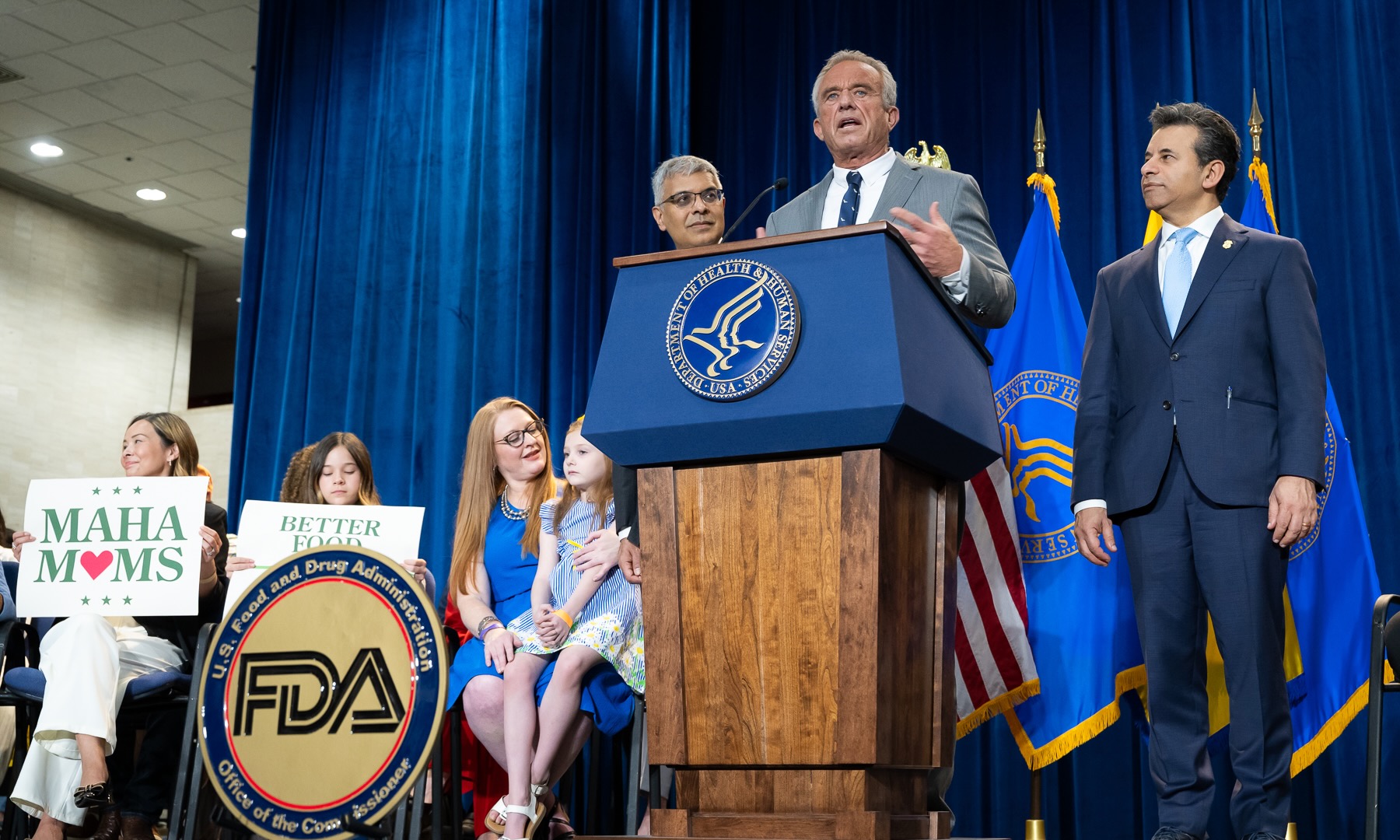A straightforward inquiry concerning peanut sensitivities propelled Dr. Gideon Lack towards a groundbreaking revelation that would fundamentally alter global perceptions of food allergies. What started as a mere interest evolved into extensive research spanning decades, ultimately redefining medical recommendations for countless parents.
The inquiry that ignited a transformation
When Dr. Gideon Lack stood before an audience of allergists and pediatricians years ago, he asked what seemed like a straightforward question: how many of them had treated a child with a peanut allergy? In most countries, nearly every hand would go up. Peanut allergies had become one of the most common—and frightening—childhood conditions, affecting about two percent of children in the United States and showing similar numbers in the United Kingdom.
But when Lack presented the identical query at a Tel Aviv conference, merely a handful of physicians indicated affirmative. Among approximately two hundred specialists, scarcely three had managed such an instance. This disparity perplexed him. Jewish children residing in London, possessing genetic profiles akin to those in Israel, exhibited considerably elevated rates of peanut allergy. What, therefore, accounted for this striking divergence?
That puzzling moment set Lack on a journey that would span more than fifteen years and ultimately overturn one of medicine’s most deeply held beliefs about allergy prevention.
Unveiling an unforeseen trend
The answer, as Lack later found, was hiding in plain sight. While spending time in Israel, he noticed something unique about local eating habits. Parents routinely fed their babies “Bamba,” a popular peanut-flavored puff snack, as early as four to six months of age. The product contained significant amounts of peanut protein, and Israeli children consumed it regularly and enthusiastically.
In contrast, parents in the United Kingdom were being told the exact opposite: to avoid exposing their infants to peanuts or other potential allergens until they were several years old. The logic behind this advice seemed sound at the time—if a food could trigger allergies, perhaps delaying exposure would prevent sensitization. But the strikingly low rate of peanut allergies among Israeli children suggested that this long-standing approach might be completely wrong.
Curious, Lack and his team compared the diets of around 10,000 children—half in Israel and half in London—who shared similar ancestry. The results were undeniable: peanut allergies were almost ten times more common among the British group. The only clear difference was when peanuts were introduced into the diet. Israeli babies were consuming the equivalent of ten peanuts a week by their first birthday, while British babies had virtually none.
Although the discovery was intriguing, it remained an observation. To transform a correlation into definitive proof, Lack required stringent scientific validation.
Challenging decades of medical advice
At the time, the notion of deliberately feeding peanuts to infants seemed almost reckless. Many doctors and parents worried that such an approach would provoke allergic reactions rather than prevent them. Funding agencies were hesitant, and ethical concerns loomed large. Nevertheless, Lack persisted.
In 2008, with support from the U.S. National Institutes of Health, his team launched a large, carefully controlled study called the LEAP trial (Learning Early About Peanut Allergy). The research focused on infants who were already at high risk of developing allergies because of severe eczema or existing egg allergies. The children were randomly divided into two groups: one would avoid peanuts entirely, while the other would be encouraged to eat small amounts of peanut-based foods regularly from as early as four months of age.
Enrolling the 640 individuals spanned a two-year period, and the research tracked their progress for half a decade. The findings, upon their disclosure, were remarkable. Within the cohort of children who abstained from peanuts, almost 14% had developed peanut allergies by their fifth birthday. For the group that incorporated peanuts into their diet early on, this figure plummeted to under 2%. Even for youngsters who had exhibited initial indicators of sensitivity, consistent peanut intake reduced the likelihood of developing a severe allergy by over two-thirds.
The data revealed an over 80% reduction in peanut allergy rates among those introduced to peanuts early—a breakthrough that fundamentally challenged existing medical guidance.
From initial insight to complete metamorphosis
When the LEAP study’s findings were published in 2015 in The New England Journal of Medicine, they marked a turning point in allergy research and pediatric nutrition. For years, official guidelines had recommended delaying exposure to allergenic foods. Now, the evidence was clear: early introduction, not avoidance, was the key to building tolerance.
The implications were enormous. The American Academy of Pediatrics, which had once advised parents to wait until age three before introducing peanuts, reversed its stance. Updated guidelines issued in 2017 encouraged introducing peanut-containing foods as early as four to six months for most babies.
The effects of this change were swift and measurable. A 2024 study published in Pediatrics found that peanut allergy rates among U.S. children under age three had dropped by more than 40% since the new guidelines took effect. That translates to tens of thousands of children avoiding what had once been a lifelong and potentially life-threatening allergy.
The ongoing evolution of medical understanding
For Dr. Lack, the event proved to be both a lesson in humility and a source of validation. He confessed that, similar to numerous other medical professionals, he had previously employed an avoidance tactic with his own offspring. Nevertheless, he also underscored that the circuitous, self-regulating essence of scientific inquiry is what ultimately propels advancement.
“The trajectory of medicine unfolds in a series of twists and turns,” he articulated. “Our recommendations are formulated upon the most current understanding available, and as new evidence emerges, our approach must similarly evolve.”
That philosophy continues to guide his research. Today, Lack co-leads a new project known as the SEAL study, once again challenging traditional assumptions. This time, the focus is on the connection between eczema and food allergies.
For a long time, medical professionals thought that food sensitivities caused eczema. However, current research indicates the opposite: infants who experience early onset eczema might be more prone to developing food allergies later on. The SEAL study seeks to investigate if proactive eczema treatment during the initial weeks of life—employing moisturizers and gentle topical remedies—could avert the emergence of allergies altogether.
The science behind early exposure
The core idea behind this novel investigation is termed the “dual-exposure hypothesis.” This theory suggests that the manner in which the immune system encounters food proteins dictates whether it identifies them as harmless or threatening. When an infant consumes food, exposure via the digestive tract instructs the immune system to accept it. However, exposure through compromised or inflamed skin, a common occurrence with eczema, could yield the opposite outcome, fostering sensitization and allergic responses.
Dr. David Hill, a pediatric allergist at the Children’s Hospital of Philadelphia and a fellow researcher in this field, characterized the immune system as a guardian. He stated, “When infants consume foods early, their immune system recognizes these proteins as benign.” He further added, “However, if those identical proteins enter the body via compromised skin, the immune system might misinterpret them as dangers.”
Lack frequently illustrates the concept using a metaphor: “Should I politely tap on your front door and request entry, you’d likely extend a courteous welcome. However, if I were to smash through a window, your reaction would undoubtedly differ.”
If the SEAL study confirms this theory, it could transform not only allergy prevention but also pediatric dermatology and nutrition practices worldwide.
Rethinking our approach to allergic reactions
The progression from that initial presentation in Tel Aviv to the contemporary comprehension of preventing food allergies illustrates how scientific breakthroughs can overturn established beliefs. What started as a localized point of interest evolved into one of the most impactful transformations in pediatric healthcare in recent times.
Dr. Lack’s contributions have already transformed the experiences of numerous households. Previously, parents were advised to steer clear of peanuts due to apprehension; however, they are now prompted to introduce them early and securely, frequently with pediatric oversight. This research has also spurred additional investigations into other allergenic foods, ranging from eggs to tree nuts, indicating that early exposure might broadly diminish the worldwide prevalence of allergies.
For Lack and his associates, the objective has consistently been more than just disseminating discoveries; it’s about instigating tangible alterations in the world. As he frequently reminds his listeners, scientific progress isn’t achieved through flawlessness but through the readiness to acknowledge errors. The crucial element, he contends, is maintaining receptiveness to data, even when it challenges all previously held beliefs.
From the joyful sounds of Israeli infants enjoying Bamba to the subsequent laboratory investigations, the narrative of preventing peanut allergies exemplifies perseverance, modesty, and the impact of challenging preconceived notions. It serves as a reminder that in scientific endeavors, much like in life, advancement seldom follows a direct path—yet each new finding propels us nearer to comprehension, recovery, and prophylaxis.




